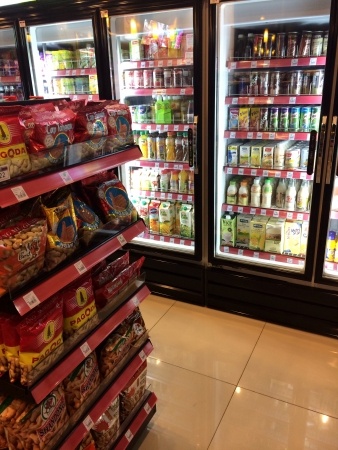
May 12, 2014
Entering the store for coffee and a snack, a warm ‘hello’ springs from behind the counter while several clients form short lines at 3 registers. The busy store is clean and well organized. Such management does not happen by accident. Oh yeah – convenience store accountability rules make a difference.
Accountability is a key component to running a C-Store well. Leading companies and managers use a mixture of high technology and artful leadership to make it happen. While approaches vary, good accountability always has a few key rules. As Randy Robinson, a 30 year veteran of C-Store and truck stop leadership states ‘The work day flows better when people know what to expect.’ These rules set expectations that makes for smooth days. Obviously, convenience store accountability rules matter.
End results depend on upfront accountability
Implementing a system and having consistent behavior is essential. Changing behavior requires clear explanations, understanding, agreement and discipline. It takes time and participation from the staff to achieve.
Fair rules must be established or hope is lost
The purpose of any accountability system is to attain best efforts for specific goals or practices. In order for staff to act differently, they must believe their actions can result is desired outcomes. Multi-location comparisons must address market size and production capacity or hope will be lost. Three pumps cannot produce the same capacity as twenty. Likewise, customer flow potential must be considered. A rural area may not be able to compete on total transactions, but may be able to manage costs and profits to achieve top performance and ROI. Ensuring that the staff can reasonably influence the attainment of a goal is essential for creating the hoping of attaining the goal.
Minimize firing staff through hiring and training
Teams do not all progress equally and consistently. Hence, the very reason accountability is used. With good hiring and good execution the team will thrive. Buy-in to a fair system makes a good team execute well. Even with great buy-in, however, there will be mistakes, loss of commitment and occasional bad behavior. Accountability means that management (and other team members) will address short comings. Acceptance of deviations allows bad behavior to become normal. Stopping the normalizing of bad behavior is a key management job. Accept good work. Address bad work promptly. Calm, fair guidance makes accountability work.
Addressing mistakes as they occur is essential. Naturally, the team must see that mistakes are fixed when needed. Seasoned managers know that the first place to look when bad things happens is to themselves. Managers must follow the rules as well. The team must be able to execute. There is no reason to hire someone that is not capable of doing a job. The job must be done once training and practice are complete . Sometimes, termination is needed. Sometimes you just have to make a change.
Teams must want to use accountability systems
Most staff feels they have more work to do than time to do it. They expect a system to save them time and reduce errors. Naturally, systems work best when there is proper buy-in, training and resources to make it work well. Of course, buy-in does not mean that all staff get to choose a new system. Buy-in comes from building goals and process together. Additionally, there must be adequate training and proper equipment with the new system. Finally, management must endorse any new system put into place.
Walk into new accountability not run
The goal is to influence the behavior of your teams in a way that improves performance. Long-term commitment is much easier to attain with up front agreement. Worker agree to accountability want to succeed. Team goal agreement takes time. They want rules that are fair, easy to use and applied consistently. Naturally, it takes time to implement. Steady progress towards the goal allows for understanding and buy-in.
As the coffee and granola bar were purchased, the cashier, Shannon McAllister, was asked if the manager’s practices made a difference in how the days went. Without any hesitation she smiled brightly ‘Oh yeah, definitely!’ Most of us like working in a great environment with strong accountability in place.